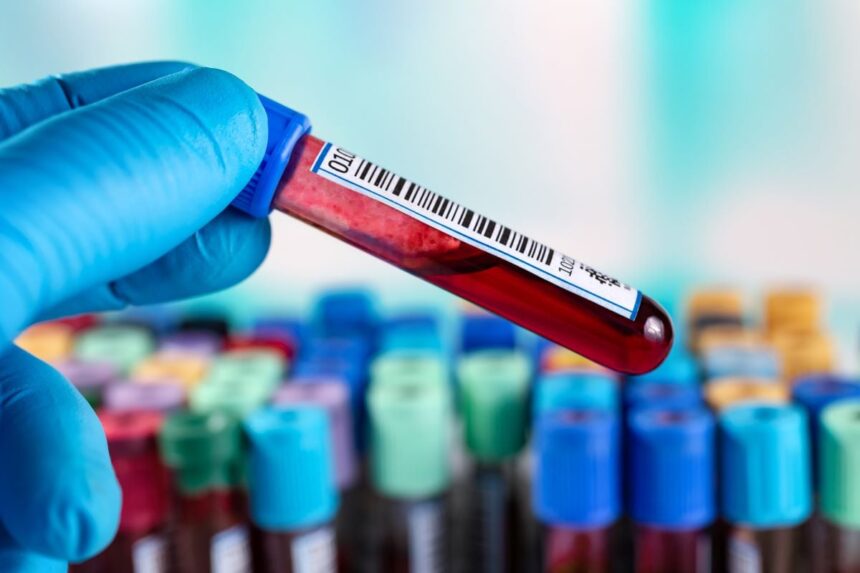MONDAY, July 29, 2024 (HealthDay Information) — A brand new take a look at gauging ranges of key proteins within the blood was much more correct than physician assessments in recognizing Alzheimer’s illness in individuals with early-stage sickness.
The take a look at, known as APS2 (the amyloid likelihood rating 2), was 91% correct in diagnosing Alzheimer’s in individuals with delicate cognitive decline or early dementia, in comparison with the 61% success fee of main care medical doctors who examined the identical sufferers.
The take a look at is not but accepted for routine use. However Dr Teresa D’Amato, director of geriatric emergency medication at Northwell Well being in Forest Hills, NY, known as the brand new knowledge “very thrilling.”
“This blood take a look at could be nice as a primary spherical of diagnostic testing as a result of it it seems prefer it’s fairly correct,” stated D’Amato, who wasn’t concerned within the new examine.
The findings had been printed July 28 within the Journal of the American Medical Affiliation. They had been printed concurrently on the Alzheimer’s Affiliation Worldwide Convention in Philapdelphia.
An correct, simply administered blood take a look at for Alzheimer’s may very well be a game-changer, in keeping with a staff of dementia consultants who wrote an editorial accompanying the analysis.
“Diagnosing Alzheimer’s is difficult, particularly in main care. Having a dependable blood take a look at is crucial to assist main care physicians make an early and correct analysis,” the editorialists stated. They included Dr. Stephen Salloway, of Brown College, Dr. Christopher Rowe, of the College of Melbourne, Australia, and Dr. Jeffrey Burns, of the College of Kansas Medical Middle.
The brand new take a look at was developed by a staff led by Dr. Sebastian Palmquist. of Skane College Hospital and Lund College in Malmo, Sweden.
The latest creation of medication that sluggish Alzheimer’s in its earliest phases have made the seek for a neater, extra correct diagnostic take a look at extra pressing.
“It turns into actually vital to diagnose Alzheimer’s very early on to make these people eligible for attainable therapy,” D’Amato stated.
The brand new take a look at depends on relative blood ranges of two varieties of proteins whose buildup within the mind has lengthy been a trademark of Alzheimer’s: Tau “tangles” and amyloid “plaques.”
Within the examine, 1,213 sufferers who had been experiencing “cognitive signs” had been evaluated by both an ordinary main care doctor examination or by way of the APS2 take a look at. The sufferers averaged about 74 years of age.
Total, 23% had “subjective cognitive decline,” 44% had “delicate cognitive impairment” and 33% had already been identified with dementia.
Sufferers had been assessed by main care physicians who relied on customary, internationally acknowledged standards in addition to CT scans and cognitive assessments.
Sufferers additionally acquired the APS2 blood take a look at.
Outcomes from every of these screening strategies had been in comparison with “gold customary” assessments for Alzheimer’s (cerebrospinal fluid assessments and PET scans in search of amyloid and tau within the mind).
In accordance with Palmquist’s group, the ASPS2 ended up being 91% correct in recognizing Alzheimer’s illness in sufferers, in comparison with the 61% accuracy of the first care medical doctors.
The blood take a look at even beat dementia specialists: They had been 73% right of their diagnoses in comparison with the 91% accuracy of the blood display screen.
Of the 2 proteins being measured by the take a look at, tau appeared by far to be a very powerful. In reality , taking a look at tau protein measurements alone produced an equally excessive accuracy (90%) in diagnosing Alzheimer’s illness, the staff discovered.
The three editorial authors pressured that questions remained, nonetheless.
Would the take a look at be economical sufficient to be used in medical doctors’ places of work? Will it achieve FDA approval to be used? And can the ASPS2 take a look at be outshone by different Alzheimer’s blood screens additionally in growth?
Nonetheless, “this examine makes the case convincingly that extremely delicate blood measures of Alzheimer illness will be built-in into the medical decision-making course of, together with within the main care setting,” they wrote.
“The way in which that I believe we envision it getting used is that somebody would are available in [to their doctor] with cognitive decline,” D’Amato defined. “A doctor would do all of the blood work that you’d usually do to rule out all the opposite causes for cognitive decline and, as well as, ship these new blood assessments in search of the amyloid and the tau and the blood. And that may very well be a screening examination. ”
“I believe if it is used appropriately it may very well be an thrilling adjunct to diagnosing Alzheimer’s before later,” she stated.
Nonetheless, Palmquist’s staff pressured {that a} blood take a look at won’t ever be the one technique of diagnosing Alzheimer’s early in its growth.
That is as a result of Alzheimer’s can take years to develop within the mind and signs that resemble early Alzheimer’s may also be brought on by different situations.
“Incorrect interpretation of a constructive Alzheimer illness biomarker [test] may thus result in under-diagnosis of comparatively widespread non-Alzheimer illness situations,” the examine authors defined.
Extra info
Discover out extra about Alzheimer’s illness on the Alzheimer’s Affiliation.
SOURCES: Teresa D’Amato, MD, director of geriatric emergency medication, Northwell Well being, Forest Hills, NY; Journal of the America Medical Affiliation, July 28, 2024






